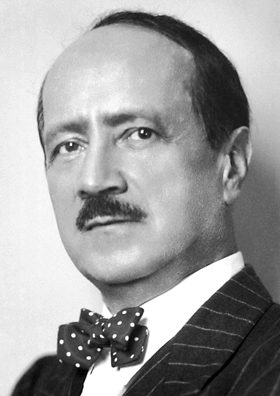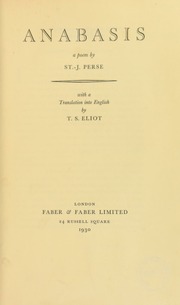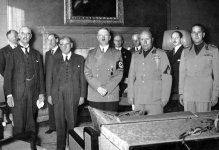Ben Jackson
Well-known member
For the Nobel Prize in Literature this year, which went to St John Perse, which real name is Alexis Leger, 59 writers were nominated. Writers nominated this year which later ok won the Nobel include: Steinbeck, Andric, Boll, Sartre. Famous names nominated this year include: Heidegger, Gaston Bachelard, Moravia, Silone, Pound, Aragon, Julien Grecq, Greene, Blixen, Krleza, Frost, Huxley, Malraux, Graves, Vessas.
Five writers were shortlisted for the Nobel this year. Ivo Andric, Serbian novelist, Heinrich Boll, Junichiro Tanizaki, the first Japanese writer to be shortlisted, and German philosopher Karl Jaspers.
Andric was backed by the Nobel committee chairman Osterling, who felt he was an accomplished writer who has brought to light the history of his country Yugoslavia (archaic name for Serbia). The committee were backing Andric except Dag Hammarskjold, who, as the most influential member of the committee and then UN Secretary-General, pushed for St John Perse, convincing the other committee members of the artistry demonstrated in works of John Perse, most especially in the then recent work Seamarks (Amers in French), and his masterpiece Anabasis. Henirich Boll was hailed as a writer who has brought a great renewal to German Literature, in the words of Osterling, but he was passed over in silence as he had published few novels at the time, while Tanizaki, hailed by the committee for his narrative mastery in the novel Makioka Sisters, was passed for lack of quality of his works due to poor translations. Karl Jaspers was dismissed for his philosophical works. It showed the committee lack of interest in awarding the prize to non-fiction writers.
I will have to read, apart from Boll, the rest of the shortlist entirely to know if Perse was actually deserving. For now, I will remain in silence.
Five writers were shortlisted for the Nobel this year. Ivo Andric, Serbian novelist, Heinrich Boll, Junichiro Tanizaki, the first Japanese writer to be shortlisted, and German philosopher Karl Jaspers.
Andric was backed by the Nobel committee chairman Osterling, who felt he was an accomplished writer who has brought to light the history of his country Yugoslavia (archaic name for Serbia). The committee were backing Andric except Dag Hammarskjold, who, as the most influential member of the committee and then UN Secretary-General, pushed for St John Perse, convincing the other committee members of the artistry demonstrated in works of John Perse, most especially in the then recent work Seamarks (Amers in French), and his masterpiece Anabasis. Henirich Boll was hailed as a writer who has brought a great renewal to German Literature, in the words of Osterling, but he was passed over in silence as he had published few novels at the time, while Tanizaki, hailed by the committee for his narrative mastery in the novel Makioka Sisters, was passed for lack of quality of his works due to poor translations. Karl Jaspers was dismissed for his philosophical works. It showed the committee lack of interest in awarding the prize to non-fiction writers.
I will have to read, apart from Boll, the rest of the shortlist entirely to know if Perse was actually deserving. For now, I will remain in silence.



